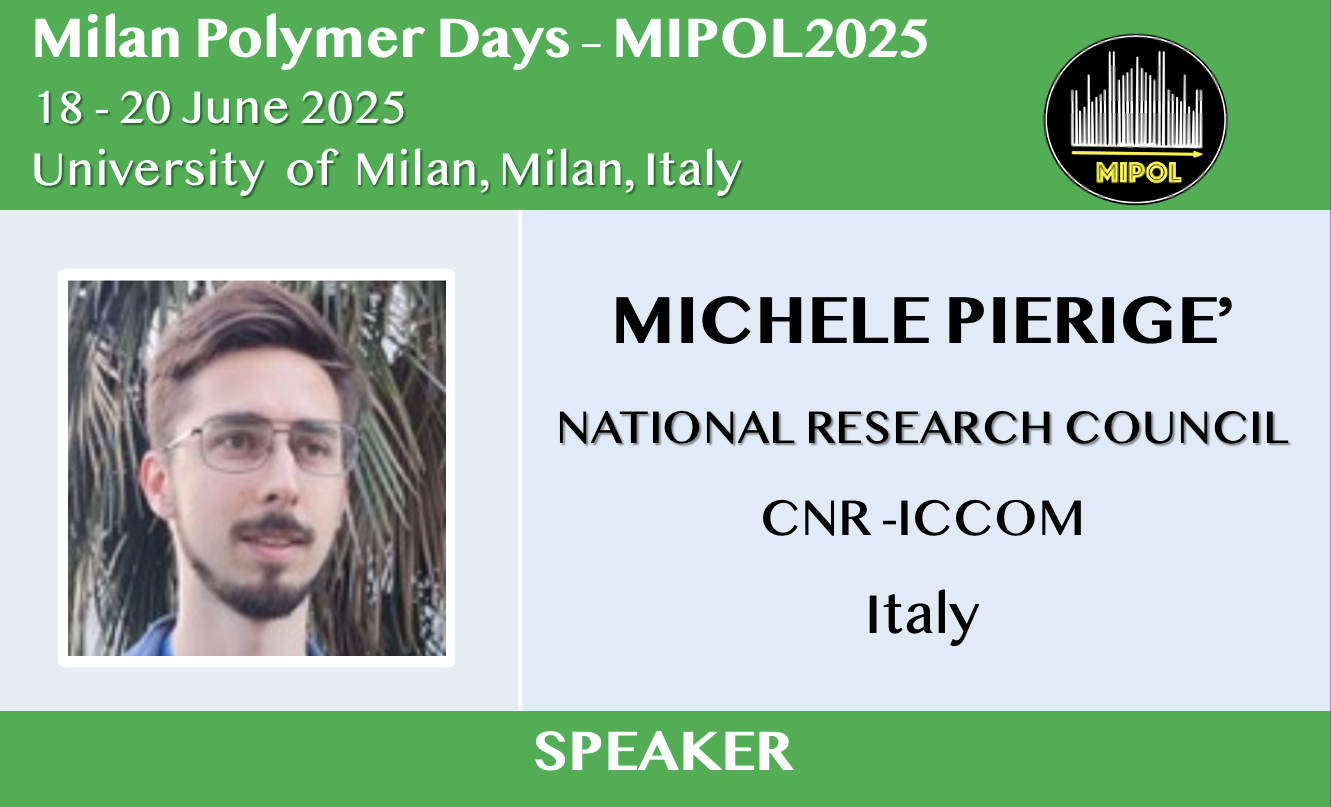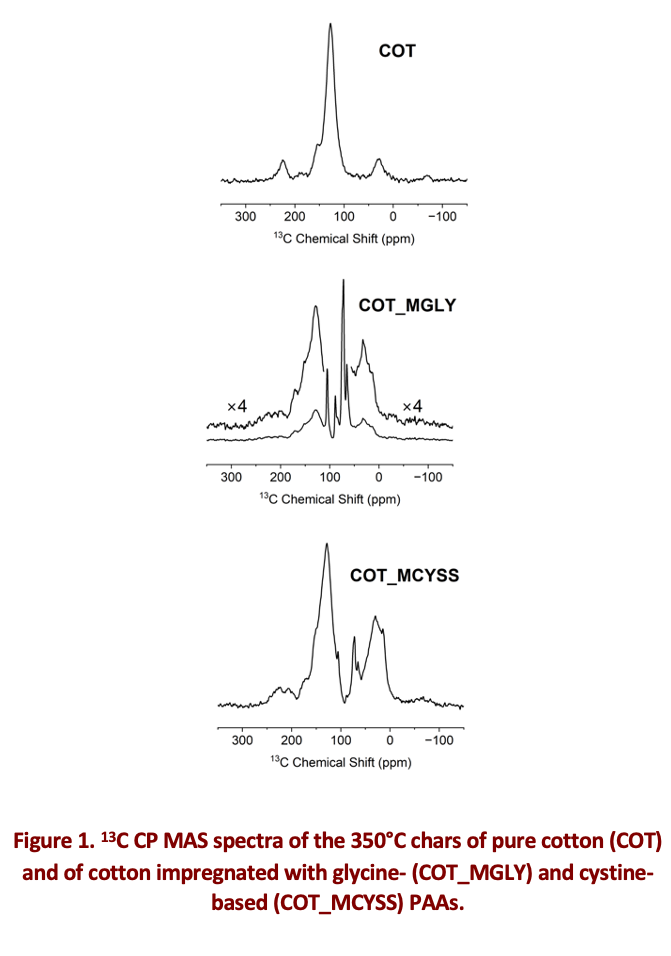Probing cotton’s thermo-oxidative behavior: a joint solid-state NMR and EPR investigation
Abstract

Cotton is inherently flammable, posing a serious risk in the event of a fire, especially when used in indoor furnishings. However, its flammability can be significantly reduced through the application of flame-retardant (FR) treatments. The development of bio-based and eco-friendly flame-retardants is currently a highly active area of research. Among these, polyamidoamines (PAAs) derived from α-amino acids have emerged as promising candidates: they are both sustainable and effective, and notably, they do not produce smoke during combustion [1]. This study aims to investigate the chemical transformations that occur in cotton impregnated with PAAs under fire-like conditions. Due to the rapid and complex nature of combustion, tracking these transformations in real time is challenging. Therefore, a controlled thermal oxidation approach was employed to simulate fire conditions and isolate intermediate products for characterization. To date, no detailed mechanism has been reported for the thermal oxidation of cotton in the presence of PAAs. 13C solid-state NMR spectroscopy was used to analyze chars of cotton treated with PAAs derived from glycine and cystine. As shown in Fig. 1, the 13C Cross-Polarization Magic Angle Spinning (CP MAS) spectra of pure cotton and cystine and glycine treated cotton charred at 350 °C reveal that the additives delay cotton degradation. To further explore the thermal oxidation mechanism, Electron Paramagnetic Resonance (EPR) spectroscopy was also employed, offering complementary insight into radical species formed during degradation.

References
- C. Forte, J. Alongi, A. Beduini, S. Borsacchi, L. Calucci, F. Carosio, P. Ferruti, E. Ranucci Polymers 2021, 13, 4382.
Acknowledgments
This research was funded by the Italian Ministry of University and Research (project PRIN 2022 FLARECO - Eco-friendly, washing-durable FLAme-REtardant finishing for cotton fabrics by COvalent grafting of α-amino acid-derived polyamidoamines, code 202237JYZN).

